Quick answer: you won’t find a permanent, drug‑free “cure” for hypothyroidism in the medical literature right now. What you can do, however, is start a smart hypothyroidism treatment plan that puts your hormones back in balance, eases the dreaded hypothyroidism symptoms, and lets you live the life you deserve. Below we’ll untangle the difference between “cure” and “management,” separate the science from the hype, and give you a friendly, step‑by‑step guide to manage hypothyroidism safely.
What Is Hypothyroidism
Definition and Hormones
Your thyroid is a tiny butterfly‑shaped gland tucked in the front of your neck. It churns out two main hormones—thyroxine (T4) and triiodothyronine (T3)—that act like the body’s thermostat, controlling metabolism, heart rhythm, temperature, and even mood. When the gland slacks off and produces too little, you get hypothyroidism.
Typical Symptoms
Think of a car that’s low on fuel: everything runs slower. Common hypothyroidism symptoms include:
- Constant fatigue (even after a full night’s sleep)
- Unwanted weight gain or difficulty losing weight
- Cold hands and feet, or a constant “chill” feeling
- Dry skin, brittle nails, and hair that seems to fall out in clumps
- Brain fog, trouble concentrating, and mood swings
- Constipation and a sluggish digestive system
How Doctors Diagnose It
The gold‑standard test is a blood draw that measures thyroid‑stimulating hormone (TSH) and free T4. A high TSH and low free T4 usually spell hypothyroidism. For a quick reference, see the table below.
| Test | Normal Range | Typical Hypothyroid Result |
|---|---|---|
| TSH | 0.4‑4.0 mIU/L | >4.5 mIU/L |
| Free T4 | 0.8‑1.8 ng/dL | <0.8 ng/dL |
For deeper detail, the American Thyroid Association provides an excellent overview of testing protocols.
Cure vs Treatment
Why a Permanent Cure Is Still Out of Reach
The most common cause of hypothyroidism in developed countries is an autoimmune attack called Hashimoto’s thyroiditis. Your immune system mistakenly flags thyroid cells as threats and gradually destroys them. Science is still hunting for a way to halt that immune fire permanently, so the term “cure” is, for now, more marketing than medicine.
What Real Treatment Does
Standard care involves thyroid medication—usually levothyroxine (synthetic T4) or a combination of T4 and T3. The goal is simple: bring your TSH back into the normal range, which usually clears the symptoms. Think of medication as a thermostat adjustment; it doesn’t fix the broken furnace but it stops the house from freezing.
Benefits and Risks of Thyroid Medication
- Benefits: stable energy levels, weight normalization, improved mood, and protection against heart disease.
- Risks (when mis‑dosed): over‑active thyroid effects like rapid heart rate, anxiety, bone loss, or worsening cholesterol.
The “Cure” Hype You’ll See Online
Pages promising a rapid, drug‑free cure—think “Hypothyroidism Revolution,” “Thyroid Miracle™,” or “The Hypothyroidism Solution™”—often rely on anecdotal success stories, affiliate links, and vague “natural” claims. They rarely cite peer‑reviewed research, and many push mega‑doses of iodine, herbs, or “detox” protocols that can actually harm the thyroid.
If you stumble upon such sites, ask yourself: Is there a randomized controlled trial supporting this claim? Who’s funding the product? Do they disclose side‑effects? A healthy dose of skepticism protects you from wasting money and, more importantly, from jeopardizing your health.
Evidence‑Based Management
Standard Medical Management
Starting on levothyroxine is often a low‑dose affair—maybe 25–50 µg per day—then the physician checks your labs after 6–8 weeks, adjusting the dose until TSH lands around 1.0 mIU/L. Once stable, most doctors recommend checking labs once a year. If you’re pregnant, planning pregnancy, or experiencing new symptoms, you’ll need more frequent monitoring.
Lifestyle Tweaks That Truly Help
Research shows that certain nutrients and habits can improve thyroid function, reduce autoimmunity, and make your medication work better. Below is a concise “what works” guide, backed by studies.
| Area | Evidence‑Based Action | Practical Tip |
|---|---|---|
| Iodine | Essential for T4 synthesis; excess can aggravate autoimmunity (WHO, 2022) | Use iodized salt sparingly; avoid mega‑dose supplements |
| Selenium | 200 µg/day can lower thyroid antibodies (Vanderpump 2018) | Eat 1–2 Brazil nuts daily or take a 100 µg supplement |
| Vitamin D | Low levels correlate with higher TPO‑Ab titres (JAMA 2023) | Take 1,000–2,000 IU daily; check serum level yearly |
| Exercise | Moderate aerobic + resistance improves fatigue (meta‑analysis 2022) | Walk briskly 30 min, 5 days/week; add light weights twice weekly |
| Stress Management | Chronic cortisol impairs T4‑to‑T3 conversion (Endocrine Reviews 2021) | 10 min mindful breathing or yoga each morning |
Sample “Day‑in‑the‑Life” Checklist
- Morning: 15 min light stretch, 400 IU vitamin D, a cup of herbal tea (no caffeine if you take levothyroxine within 30 min of eating).
- Breakfast: Greek yogurt with a handful of berries and one Brazil nut.
- Mid‑day: Take your thyroid medication with water, then wait 30 minutes before your lunch.
- Afternoon: 10‑minute breathing break, a short walk if you sit all day.
- Evening: Dinner rich in selenium (tuna, sunflower seeds) and a quick gratitude journal to lower stress.
When Complementary Approaches Are Safe
Probiotics, omega‑3 fatty acids, and mild yoga can support overall health without replacing medication. However, avoid jumping straight to “no‑med” plans unless a doctor tells you it’s safe. If you have a proven gluten sensitivity, a gluten‑free diet may reduce antibody levels, but it’s not a universal fix.
Build Your Personal Management Plan
Step‑by‑Step Worksheet (Downloadable PDF)
Take a few minutes tonight to fill out this simple worksheet:
- List current meds, doses, and the time you take them.
- Rate each symptom on a 1‑10 scale (e.g., fatigue = 8).
- Schedule your next lab check (TSH, free T4, antibodies).
- Pick three lifestyle goals from the table above.
- Write a short “why” statement—what getting better means for you (more playtime with kids, hiking, etc.).
When to Call a Specialist
Even if you feel better, certain red flags warrant a prompt endocrinology visit:
| Red Flag | Action |
|---|---|
| TSH > 10 mIU/L | Phone your doctor within 2 weeks for dose review. |
| Sudden weight change > 10 lb in a month | Schedule urgent lab work. |
| Pregnancy or trying to conceive | Discuss dosage adjustments early. |
| New heart palpitations or chest pain | Seek immediate medical attention. |
Bottom Line – What “Cure” Really Means for You
The word “cure” can feel like a promise of a magic wand, but the reality is more nuanced. While we don’t yet have a way to permanently erase the autoimmune process that underlies most cases, we do have a toolbox that lets you cure the impact on your daily life. Consistent, evidence‑based hypothyroidism treatment, paired with targeted nutrition, modest exercise, and stress control, can make the symptoms disappear for good—or at least shrink them to a barely‑noticeable whisper.
Remember, you’re not alone in this journey. Many of us have walked the foggy path of fatigue, weight gain, and brain fog, only to find relief after a few months of steady medication and lifestyle fine‑tuning. If you’ve tried a “quick‑fix” program that didn’t deliver, consider it a learning experience rather than a failure. The body’s thyroid isn’t a broken lightbulb you can swap out in a day; it’s more like a thermostat that needs a calibrated setting and a well‑insulated house.
So, what’s the next step? Talk to your doctor about optimizing your dose, add one or two of the lifestyle actions above, and keep a simple symptom diary for a month. When you start seeing improvement, you’ll know you’re on the right track—and you’ll have proof that you’re the one steering the ship, not some vague “cure” promise.
What’s your biggest challenge with hypothyroidism? Share your story in the comments, ask questions, or let us know which lifestyle tip you’re excited to try first. We’re all in this together, and your experience might just be the spark that helps someone else find their own path to feeling better.

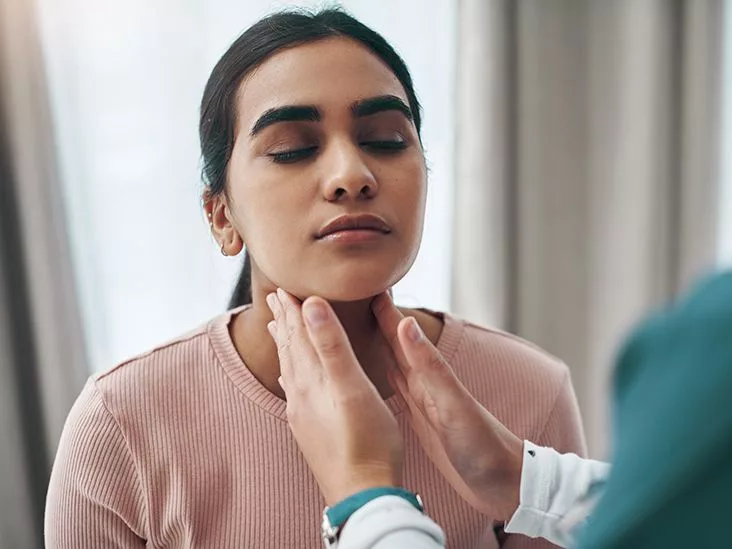



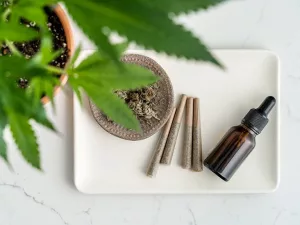
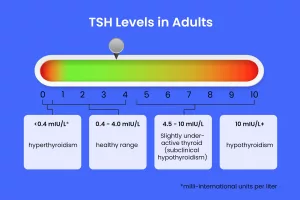

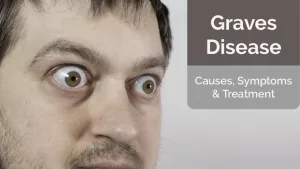
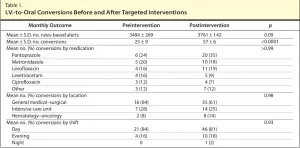

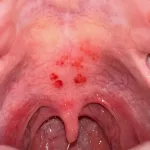


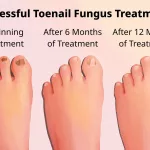

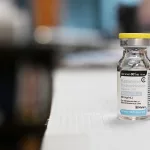


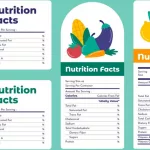

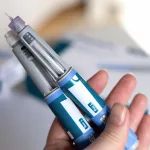


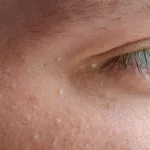
Leave a Reply
You must be logged in to post a comment.